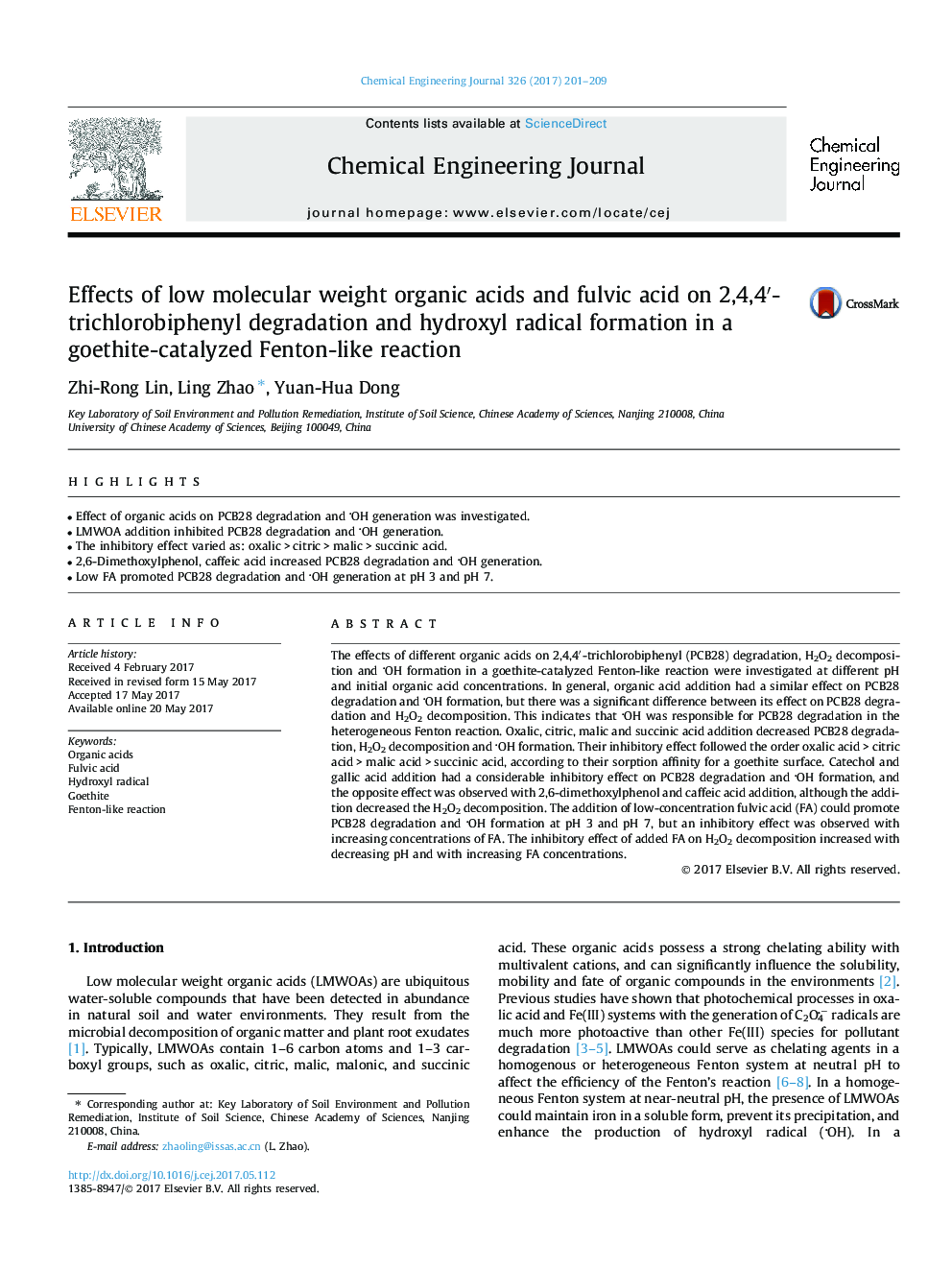| Article ID | Journal | Published Year | Pages | File Type |
|---|---|---|---|---|
| 6465451 | Chemical Engineering Journal | 2017 | 9 Pages |
â¢Effect of organic acids on PCB28 degradation and OH generation was investigated.â¢LMWOA addition inhibited PCB28 degradation and OH generation.â¢The inhibitory effect varied as: oxalic > citric > malic > succinic acid.â¢2,6-Dimethoxylphenol, caffeic acid increased PCB28 degradation and OH generation.â¢Low FA promoted PCB28 degradation and OH generation at pH 3 and pH 7.
The effects of different organic acids on 2,4,4â²-trichlorobiphenyl (PCB28) degradation, H2O2 decomposition and OH formation in a goethite-catalyzed Fenton-like reaction were investigated at different pH and initial organic acid concentrations. In general, organic acid addition had a similar effect on PCB28 degradation and OH formation, but there was a significant difference between its effect on PCB28 degradation and H2O2 decomposition. This indicates that OH was responsible for PCB28 degradation in the heterogeneous Fenton reaction. Oxalic, citric, malic and succinic acid addition decreased PCB28 degradation, H2O2 decomposition and OH formation. Their inhibitory effect followed the order oxalic acid > citric acid > malic acid > succinic acid, according to their sorption affinity for a goethite surface. Catechol and gallic acid addition had a considerable inhibitory effect on PCB28 degradation and OH formation, and the opposite effect was observed with 2,6-dimethoxylphenol and caffeic acid addition, although the addition decreased the H2O2 decomposition. The addition of low-concentration fulvic acid (FA) could promote PCB28 degradation and OH formation at pH 3 and pH 7, but an inhibitory effect was observed with increasing concentrations of FA. The inhibitory effect of added FA on H2O2 decomposition increased with decreasing pH and with increasing FA concentrations.
